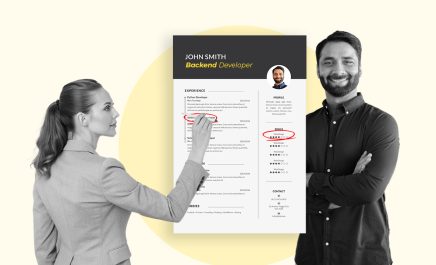Key Skills for Thriving in Remote Work: Insights from LemonEdge’s Talent Acquisition Expert, Sana Fatima
- Anwesha Roy
- October 30, 2024
- 3 Minute Read

In a recent conversation hosted by Shimul Garg , Account Management at Uplers, Sana Fatima
Understanding the Shift to Remote Work and Its Impact
The pandemic changed how businesses operate, with remote work becoming a global norm. According to Sana, this shift has emphasized the need for a “structured approach to remote work,” requiring candidates to possess both technical and interpersonal skills to maintain productivity and focus in an unsupervised environment.
Essential Skills for Remote Work Success
Remote work demands specific competencies. Below are some of the top skills that employers prioritize:
- Tech Savvy and Computer Literacy Candidates must be proficient with digital tools and basic troubleshooting. Employers look for skills in programs like Microsoft Outlook, Excel, and virtual collaboration tools like Slack and Zoom. In technical roles, such as for .NET developers, familiarity with frameworks and databases is essential. Employers prioritize individuals who can demonstrate a deep understanding and practical experience with the necessary technologies.
- Communication and Collaboration Skills Communication is critical in a remote work environment, where direct supervision is limited. Remote employees should be comfortable articulating ideas clearly and effectively in both written and verbal formats. Virtual team collaboration relies on clear communication, so candidates who are strong communicators stand out.
- Self-Discipline and Task Management Remote work requires self-discipline to avoid distractions and maintain productivity. Candidates must manage their time well, prioritize tasks, and meet deadlines independently. Demonstrating the ability to remain organized and focused builds credibility with remote employers.
- Cybersecurity Awareness Employers value candidates with a strong understanding of cybersecurity practices, such as using multi-factor authentication (MFA) and maintaining software updates. Certifications in cybersecurity and data protection, including GDPR, are valuable assets in a remote setup, showcasing an employee’s readiness to protect company assets and data.
- Proficiency in Remote Interviewing In a virtual setting, a candidate’s setup speaks volumes about their professionalism. Sana suggests preparing for virtual interviews by ensuring a strong internet connection, a clean background, and familiarity with the chosen platform. Wearing professional attire and displaying technical competency in managing the virtual setting can make a strong impression.
- Adaptability and Continuous Learning With the ever-evolving remote landscape, employers value candidates who invest in ongoing skill development. Certifications in relevant areas, like AWS or advanced software skills, can showcase a candidate’s commitment to growth. Embracing continuous learning not only enhances skillsets but also demonstrates adaptability in a changing industry.
Building an Impressive Remote Presence
A strong online presence is crucial for remote candidates. Sana recommends:
- Creating a Portfolio or Blog: A dedicated website to showcase skills, case studies, or tutorials can elevate a candidate’s profile.
- Contributing to Open-Source Projects: Sharing expertise on platforms like GitHub can be a significant advantage, particularly for technical roles.
- Leveraging LinkedIn and Technical Forums: Participating in discussions on LinkedIn and communities like Stack Overflow enhances visibility and professional networking.
LemonEdge’s Culture and Approach to Remote Work
At LemonEdge, values like transparency, flexibility, and mental health are central to their remote-first culture. Sana highlighted that LemonEdge offers benefits like gym memberships, mental health support, and flexible schedules to promote a healthy work-life balance for their global team. Additionally, their hiring process is streamlined, focusing on simplicity to reduce candidate stress.
Practical Tips for Candidates in Remote Hiring Processes
- Follow-Up After Interviews: It’s ideal to follow up within 48 hours of an interview to express gratitude and reinforce your interest.
- Negotiating Salary: When discussing compensation, be firm and prepared with market data for similar remote roles. It’s essential to communicate one’s value confidently.
- Asking the Right Questions: During interviews, ask about expectations, role-specific challenges, and company culture to better understand alignment with the company.
Conclusion: Thriving in a Remote Workforce
This conversation underscored the importance of technical expertise, adaptability, and effective communication for anyone aiming to excel in remote roles. For candidates seeking remote work opportunities, building a robust online presence, keeping technical skills up-to-date, and showcasing a disciplined work approach can significantly enhance employability. LemonEdge’s commitment to a supportive, growth-oriented culture sets a valuable example for remote companies and professionals alike.
Reference


Thank you for submitting the details!
We will keep your information safe. Feel free to contact us with any questions at hello@uplers.com
Please check your email for next steps shared by Robert.

















